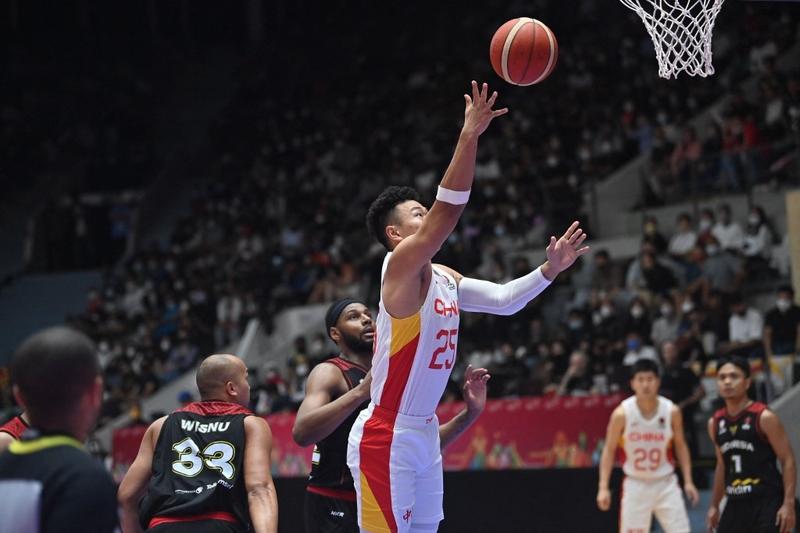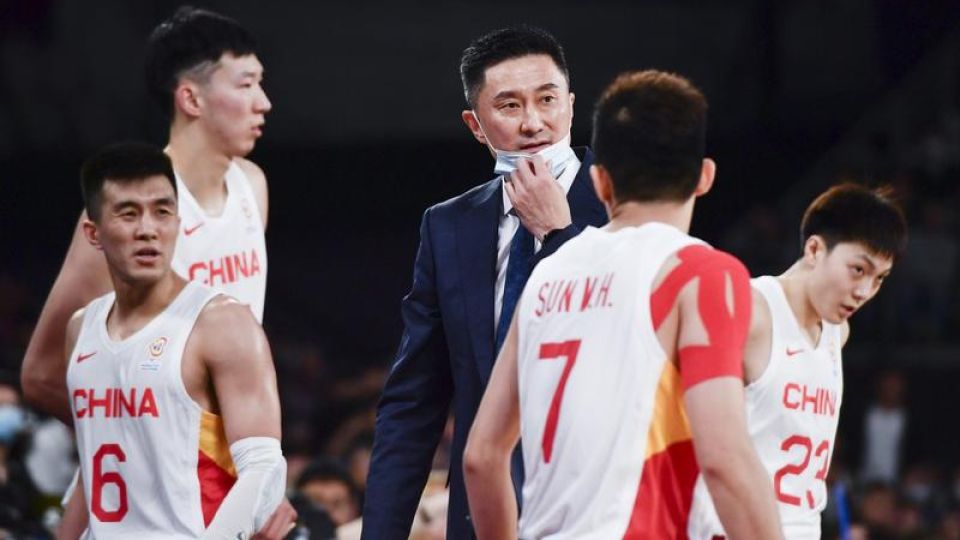August 26, 2022
BEIJING – Team China is confident a rigorous European training trip has given it the best possible chance of redemption in its upcoming World Cup qualifiers in Astana.
The four-week training program in Spain and France helped Team China shake off the disappointment of last month’s Asia Cup campaign, so the squad arrived refreshed in the Kazakh capital, where it will play two FIBA World Cup qualifiers over the next week.
Although several players are carrying injuries, Team China picked up the pace in Europe, with the 16-time Asian champion keen to restore its reputation and supremacy on the continent, beginning with a battle against host Kazakhstan on Thursday before facing Bahrain on Aug 29.
I think we achieved what we set out to do on our European trip, which was essentially a makeshift training camp during the break in tournaments. During our stay, we particularly worked on contact drills to improve our intensity when we come up against physically strong opponents.
Du Feng, head coach of China men’s basketball team
“I think we achieved what we set out to do on our European trip, which was essentially a makeshift training camp during the break in tournaments,” head coach Du Feng said on Tuesday in a video message upon arriving in Astana.
“During our stay, we particularly worked on contact drills to improve our intensity when we come up against physically strong opponents.
“We’ve also improved our rebounding, consistency and focus throughout the whole game to be ready for some real tests here,” said Du, a former national team forward.
During eight practice games against local clubs and visiting NCAA teams in Europe, the Chinese squad adapted to the physical and aggressive style of international play while building better chemistry within a roster badly hampered by COVID-19 symptoms during the Asia Cup tournament in Jakarta last month.
The fierce scrimmages, though, came with some downside.
Du’s starting point guard Zhao Jiwei sustained a broken nose during a game while Zhao’s backcourt partner Guo Ailun pulled a thigh muscle, adding to an injury list that also includes center Wang Zhelin’s sore knee and guard Sun Minghui’s wrist contusion.
The health issues exacerbated fans’ worries about Team China’s readiness for the forthcoming qualifiers, even though those who picked up COVID-19 infections have shaken off their symptoms. It’s believed players were infected en route to Indonesia from Melbourne, Australia, where the team was playing World Cup qualifiers in early July.
“We are still struggling to get back to our best shape, although we are a much better team physically now than a month ago at the Asia Cup. I believe we can do a better job in the next two qualifiers,” said Du.
Now ranked third in the six-team group with four wins from six matches, Team China needs to bring its A-game facing surprise package Kazakhstan, which has chalked up five wins-including two straight victories over traditional Asian force Iran-to sit second in the group behind leader Australia.
The game tips off at 10 pm Beijing time at the Republican Velodrome Saryarka, where the home fans are expected to generate a noisy and hostile atmosphere.
Du has reminded his players to stay sharp, defend hard and play smart straight from the tip-off until the final whistle.
“Their players have improved a lot in recent years competing in the high-level Russian league and have developed a highly physical style of play,” said Du.
“We need to maintain our intensity in body contacts and try to limit their rebounding to dictate the play,” said Du, who was part of the Chinese team that finished eighth at the Beijing 2008 Olympics.
Four days after facing the host, Team China will play Bahrain, also in Astana because it is not possible to stage the game in China amid the pandemic. Du’s squad will aim to slow down the fast-attacking western Asian foe again following its 80-79 win at the Asia Cup on July 14.
Bahrain’s American-born power forward Devon Dwayne Chism, who has averaged a team-high 18 points, will be the No 1 priority for Team China’s defense, according to Du.
“It’s quite a fast and powerful team bolstered by naturalized players. They play with aggressive offense on the perimeter and rebound fiercely in the paint. We should never underestimate an opponent like this,” he said.
After these two games, Team China will have to compete in two more qualifying windows in November and February. A top-three finish in the group will earn qualification for next year’s World Cup, jointly hosted by the Philippines and Japan, where Asia’s only direct berth for the 2024 Paris Olympic tournament will be up for grabs.
Due to a disappointing campaign at the home World Cup in 2019, Team China lost the only direct qualification spot available for the Tokyo Olympics to Iran, missing out on the Games for the first time since the country’s Olympic debut in 1984.
As a perennial continental power and a two-time quarterfinalist at the Olympics (1996, 2008), Team China suffered another blow on July 20 when it lost 69-72 to Lebanon in the Asia Cup quarterfinals. That was China’s second straight early exit at the continental tournament after a fifth-place finish at the 2017 edition.
The two upcoming World Cup qualifiers are expected to serve as a morale boost for Du’s rebuilding squad, which is mainly composed of young standouts from China’s domestic league.
“However the games play out, it will be an invaluable learning experience for our young players who haven’t had enough international drills due to the pandemic’s impact,” said Du.

China’s He Xining shoots as they play against Indonesia during their playoff match at the 2022 FIBA Asia Cup in Jakarta on July 18, 2022. (ADEK BERRY / AFP)


